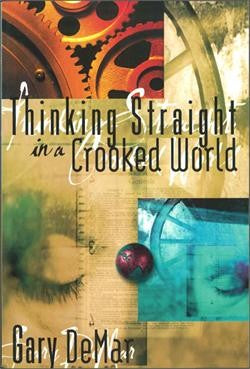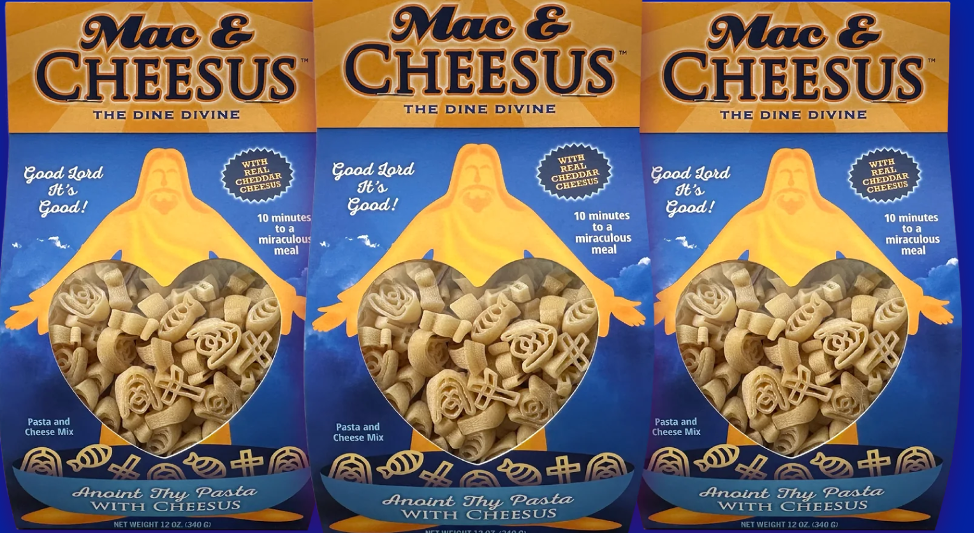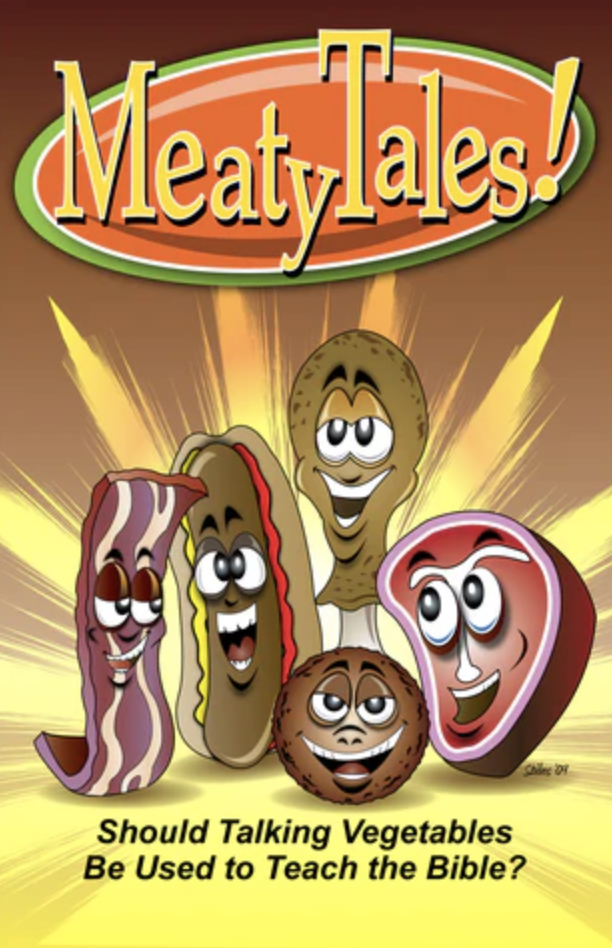Some years ago, I attended a Christian Booksellers Association (CBA) Convention that was held at the World Congress Center in Atlanta, Georgia. I was there to meet with the publicist who handled my book End Times Fiction: A Biblical Consideration of the Left Behind Theology that was published by Thomas Nelson. (Now published by American Vision as Left Behind: Separating Fact from Fiction). Remind me to tell you how difficult it was to get it published by the publishing company that asked me to write it. Bizarre, but I understood the reluctance. Left Behind was making a killing for Christian bookstores at that time. How would a book that explains how the LB thesis was unbiblical sell? If the book had not be published right before the events of 9-11, it would have done better than it did. Also, Thomas Nelson was then and today publishing the same type of end-time speculation.
A day was all I could take meandering among the booths looking for good books to add to my library. It was dismal. Christian publishing is diverse and can be lucrative for some authors. A great deal has changed since I attended my last CBA Convention. Hundreds (maybe thousands) of independent publishing houses have sprung up. Self-publishing is big and growing. Anyone can publish a book today. The computer has made it easy to write and set it up for publishing. There are electronic versions and PDFs that can be sent around the world at the speed of light at no cost. Selling books is still the hardest part.

Thinking Straight in a Crooked World
The nursery rhyme "There Was a Crooked Man" is an appropriate description of how sin affects us and our world. We live in a crooked world of ideas evaluated by crooked people. Left to our crooked nature, we can never fully understand what God has planned for us and His world. God has not left us without a corrective solution. He has given us a reliable reference point in the Bible so we can identify the crookedness and straighten it.
Buy NowAlas, there’s a lot of junk out there. I visited our local Barnes & Noble to see what was new in the religion department. Depressing. Then I saw something on Facebook that personified where much of today’s theological expertise is. Of course, it could have been created as satire, but in terms of what I have seen over the years, I wouldn’t be surprised if it was real since I’ve seen some of this type of junk before. The Babylon Bee’s satire has a funny way of becoming reality. Here’s what I saw: “Mac & Cheesus: The Dine Divine”:

I want to believe that this is satire based on come-on lines like “Come to Chessus” and “Praise Cheesus.” But I’m not sure with pictures of the product sold in stores with Jesus Junk “Jesus Shaves Mugs.”

The thing is there’s a lot of theology out there that’s this bad. Eschatology is some of the worst of it.
There is a lot at stake at cleansing the Christian book and trinket temple. The trinket makers of Jesus Junk would have to find another line of work. It’s been going on for a long time. There were the Christian candy manufacturers, makers of “Testamints: The Mints with a Message” (a Velamints rip-off) and other sweet things for Jesus. And what about this? It’s real. I have a packet.
I can still see the bright red baseball cap with “Things go better with Christ” emblazoned across the front, and I shudder. Must we borrow from mass marketing specialists to promote the gospel? “Got milk?” becomes “Got Jesus?” I wonder how many people have become Christians after seeing a “kneeling Santa” figurine?

For a wonderful but depressing expose of the ‘Jesus-Junk’ industry, see John B. Murdoch’s “Kneel, Santa, Kneel,” published in the September/October issue of Christian Advertising Forum. Also see Colleen McDannell, Material Christianity: Religion and Popular Culture in America (New Haven, CT: Yale University Press, 1995). Then there’s a “Lord’s Gym” mouse pad with Jesus doing a push-up with the cross on His back. Viewers are enjoined to “Bench Press This!”
Have you noticed that the fish symbol has been remade? Now it just has “Jesus” on the inside. I”ve asked numerous Christians what the fish represents. Most don’t know. Many may recall that five Greek letters filled the inside. What did they mean? Do you know?
Can the Christian faith be trivialized? You bet it can. If this is a concern, then I suggest we spend more time condemning “Jesus Junk” like “Things go better with Christ” (“Things go better with Coke.”) God’s Gym” (Gold’s Gym), “Godsword: Thirst Quencher” where the logo design and colors are made to look like Gatorade, Shadrach, Meshach, and Abednego Brand Hot Sauce T-shirts where the image looks like the label on Tabasco Hot Sauce, and “WWJD” lollipops to reach contemporary culture.
These older versions of Jesus Junk have only gotten more sophisticated with “Veggie Tales.” No doubt that Jesus used every-day examples to communicate spiritual truths, but I don’t believe He had talking veggies in mind. Somehow awe and mystery are lost when a child hears religious platitudes coming from the mouth of a carrot. Come to think of it, carrots don’t have mouths! Veggie Tales do nothing more than trivialize the gospel. Christianity has become a religion for children. The sloppy, syrupy books about Jesus and what it means to be a Christian can only be appreciated by eight-year-olds, if that. Is it any wonder that so many teenagers and college-age kids throw off such childish nonsense and never come back to the faith?
For a critique of the Veggie Tales brand, I wrote MeatyTales: Should Talking Vegetables be Used to Teach the Bible?

In a couple of back issues of Biblical Worldview magazine, I made some off-hand negative remarks about the ever-popular Veggie Tales videos. I suggested that a more appropriate series should carry the title Meaty Tales. The “meaty” reference was to call attention to the need for more substance in what we teach children (Heb. 5:12, 14), especially as it relates to biblical content and application. Armless and legless vegetables portraying Bible characters are not the best way to communicate a comprehensive and sustaining Christian worldview to children. Will the next generation of Christians be able to compete against the worldviews of naturalism, materialism, atheism, Islam, postmodernism, or whatever new “ism” has attached itself to the American soul after a steady diet of Veggie Tales? Do you think Muslims would ever depict Muhammad as a dancing and singing vegetable? You are what you eat and what you don’t eat.
You can download a free copy here.
Christian Publishers’ catalogs used to lead with non-fiction theological works, now you must wade through pages and pages of “Christian fiction” before you get to the good stuff, if you can find it. Don’t get me wrong, there are still some good books being published. It’s just that the average Christian bookstore (if they even exist) doesn’t carry them. Christian bookstores stayed in business by selling Christian trinkets and related “Jesus Junk.” You don’t have a voice in God’s kingdom when you are promoting a trivialized version of Christianity. If you want to get a lot of likes on Facebook, put up some bizarre story about Christianity and then read the comments.

